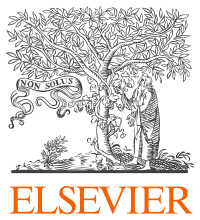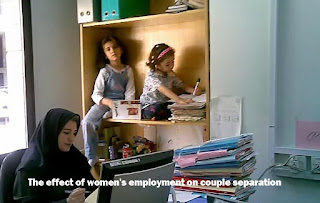The born Children from modern fertility from a jurisprudence and legal point of view (Article: Children Citizenship )
a M.A in Family Law, Department of Islamic Law and Education, Kerman Branch, Islamic Azad University, Kerman, Iran
b Ph.D. in Jurisprudence and Islamic Law, Assistant Professor of Islamic Jurisprudence and Foundations, Kerman Branch, Islamic Azad University, Kerman, Iran
Site address and place of publication of the article: http://germanconf.com/en/
Article Axis: Investigating the Citizenship of Children Born of Modern Fertility, Law
Abstract
Reproduction and continuation of generation is one of the most important goals in marriage. In the event of no pregnancy, couples will seek infertility treatment and use modern fertility techniques to achieve this innate desire. The question that comes to mind in infertile couples about laboratory children is what is the status of these children? The purpose of this study was to investigate the citizenship of children of modern fertility from the viewpoint of Imamieh jurisprudence and Iranian law. The research method is descriptive-analytical and the data collection method is library. Finally, by examining this issue in Imamieh jurisprudence and Iranian law, we came to the conclusion that, from the viewpoint of Imamieh jurisprudence, these children have been affiliated with the owners of sperm and ovule and gained their nationality. And from the legal point of view, there is no specific legislation in Iran, and the general rules of citizenship apply, in which cases the citizenship of the child may even be different from the donor couple.
Keywords: Citizenship, New fertility, Imamieh Jurisprudence, Iranian Law
Conclusion
In research on new fertility, after conducting the necessary studies, using religious principles and citing the view of jurists and Iranian law, the challenges that arise in using these methods, based on the opinion and fatwa’s of jurists and legislations, we answered. The question that arises in the audience's mind, Citizenship issues And how it grant citizenship. What can be offered as an answer to this question is that according to the jurists' view of this kind of fertility, wherever inoculation results from the combination of male sperm with female oocyte. If there is a marital relationship between them and not doing the prohibited act, In this case, all jurists have issued a ruling that their use is correct. Because, its realization has strengthened the family and the innate need of the couple is also answered in this way. Due to the legality of fertility, the children with his parents have a relative relationship and belong to the legal parents. In Islam, the principle of kinship accordingly is accepted if a child is born of a Muslim, he is a Muslim and if a person causes a miscarriage of a Muslim father, he must pay the child's blood money. Based on the blood and kinship principle, in this case to the child is subordinate to the parent and the child is granted parental citizenship. In Iranian law, there is no specific law in this area and the general rules and regulations of citizenship app. The laws and regulations of Iran have been formulated in accordance with Islamic law and the principle of blood and kinship is accepted and applicable in the field of citizenship in Iran. According to Article 976 of the Civil Code, if the child's parents are Iranian born, or have Iranian citizenship, or are the father of the Iranian child, or were born in Iran, the Iranian government grants Iranian citizenship to the child born of such fertility. But in some cases the nationality of the child may be different from the recipient couple; this is one of the weaknesses in this area. To reduce these differences, the Iranian government has placed Iranian citizenship in the Fetal Donation Act of 2003 as a condition for recipient couples.
How To Cite The Article:
If you want to refer to this article in your research work, you can simply use the following phrase in the resources section:
Inside the text, wherever a phrase or achievement of this article is mentioned, after mentioning the content, the following specifications are written in parentheses.







Comments